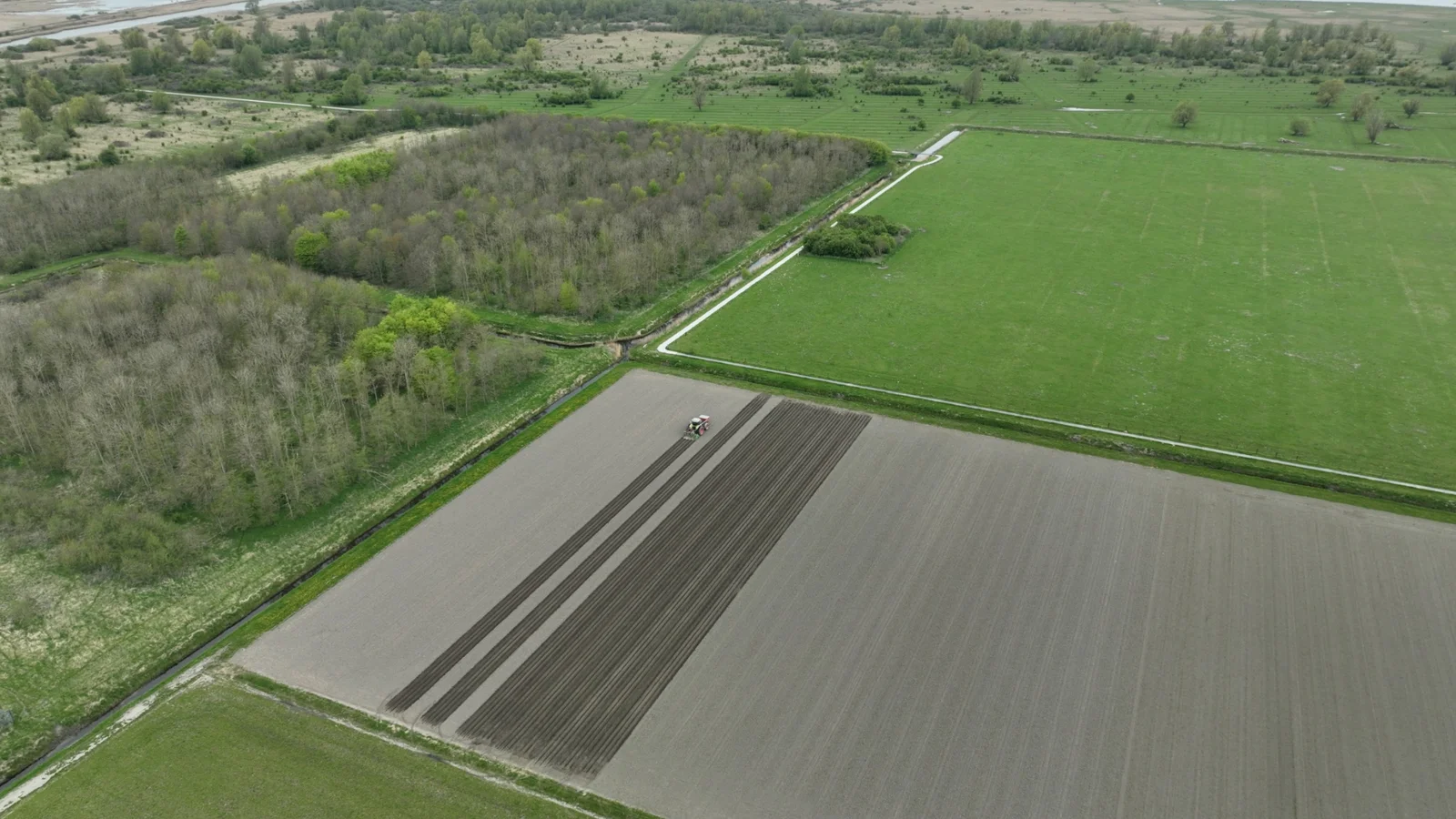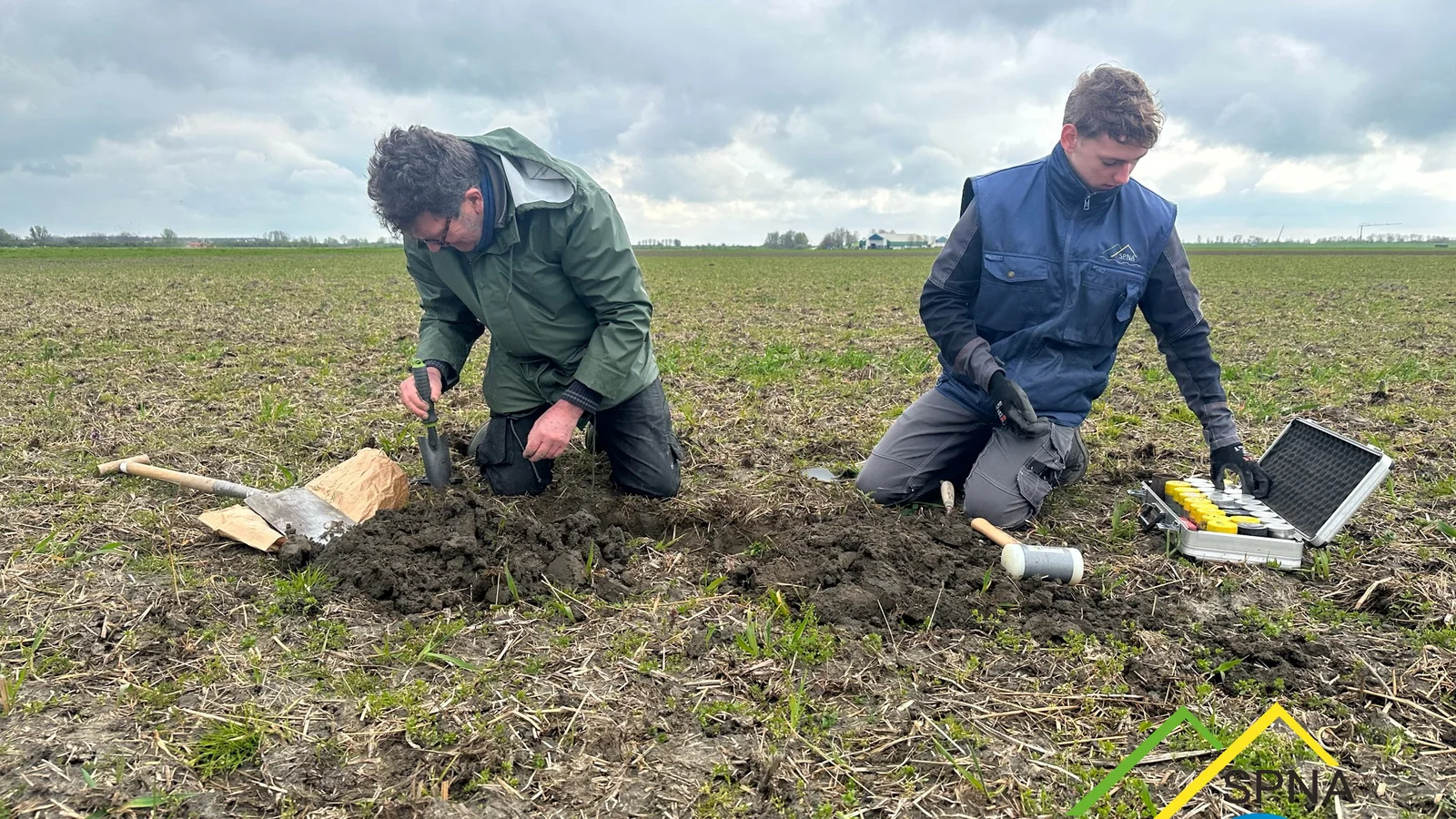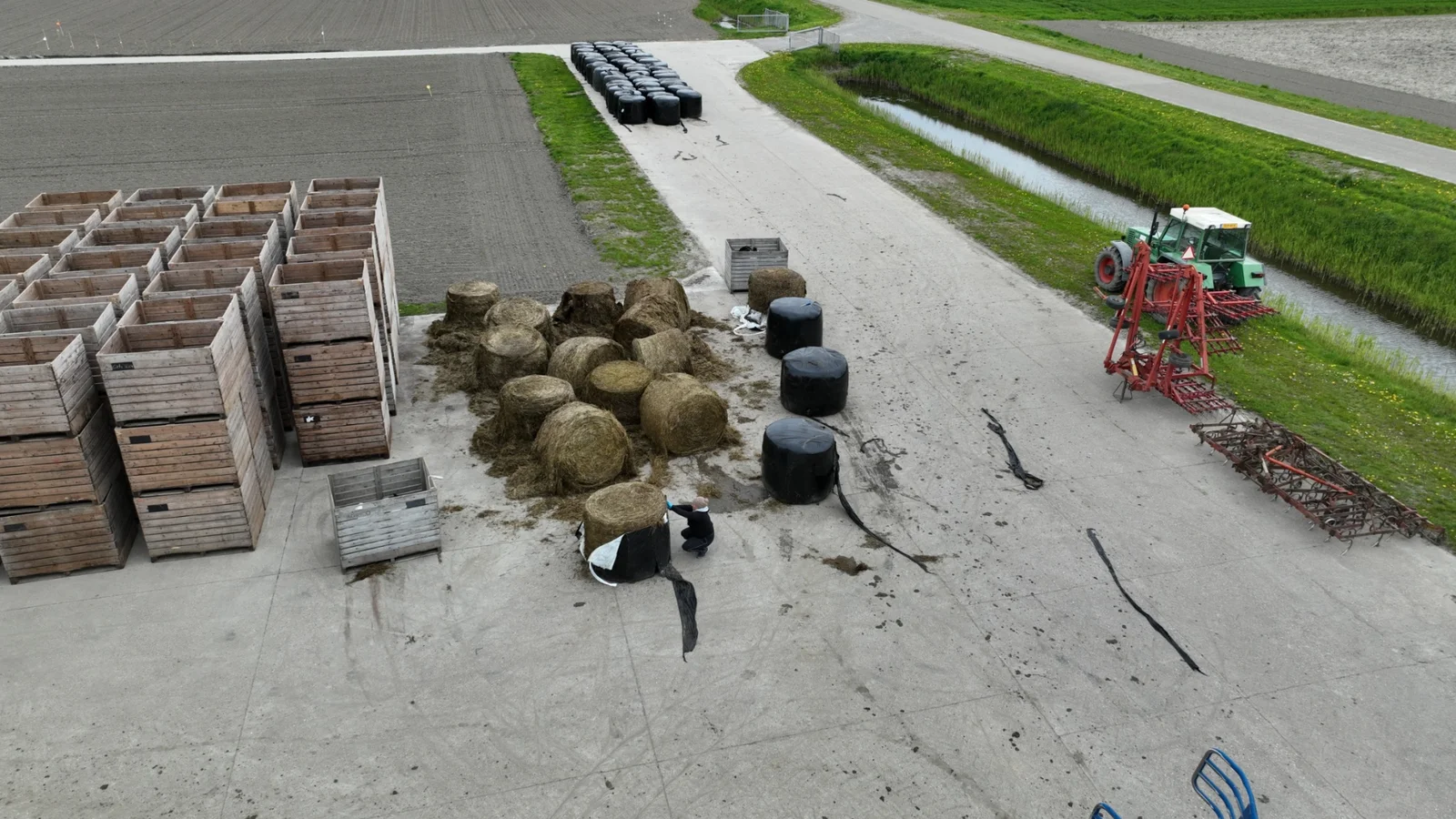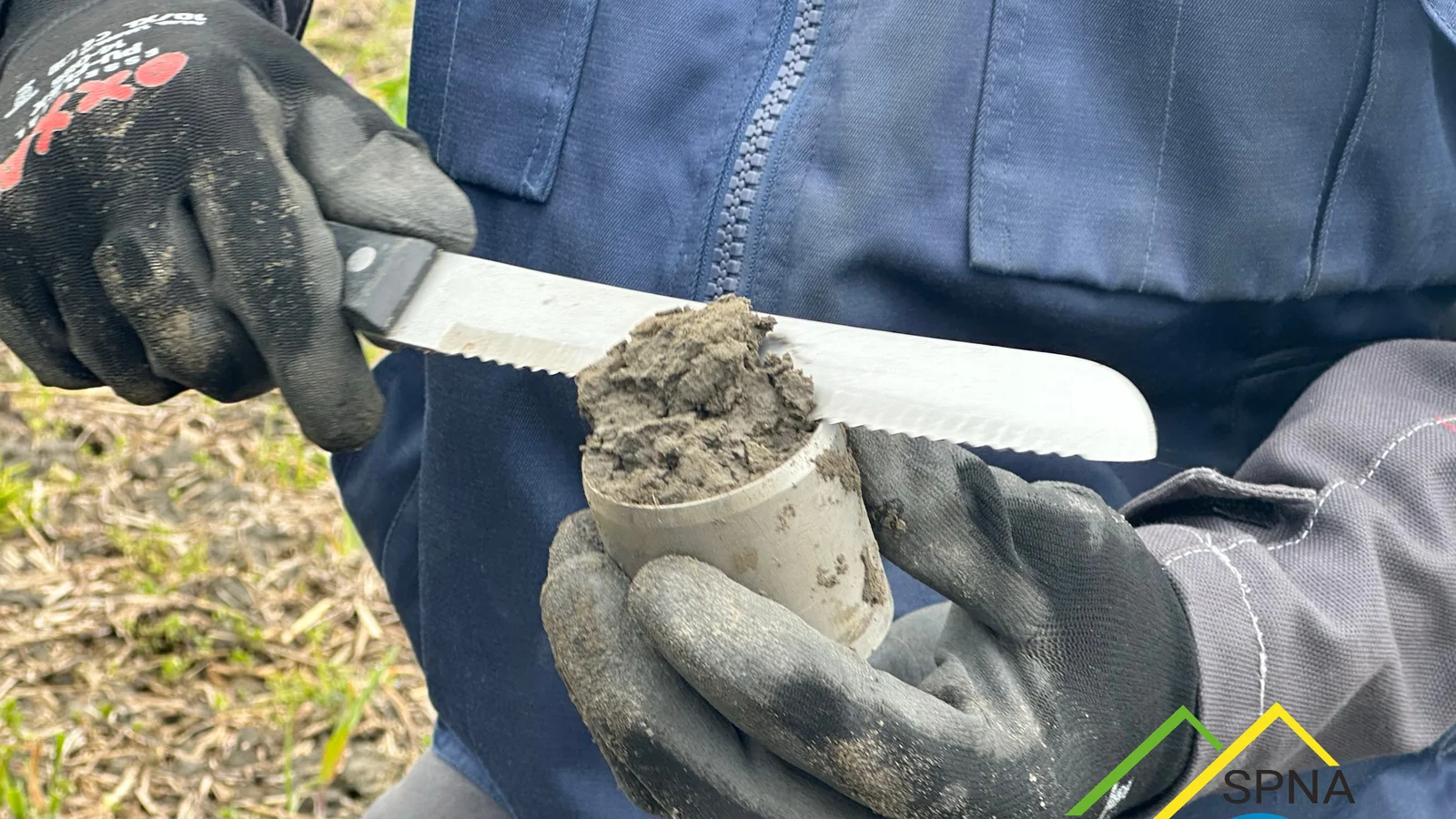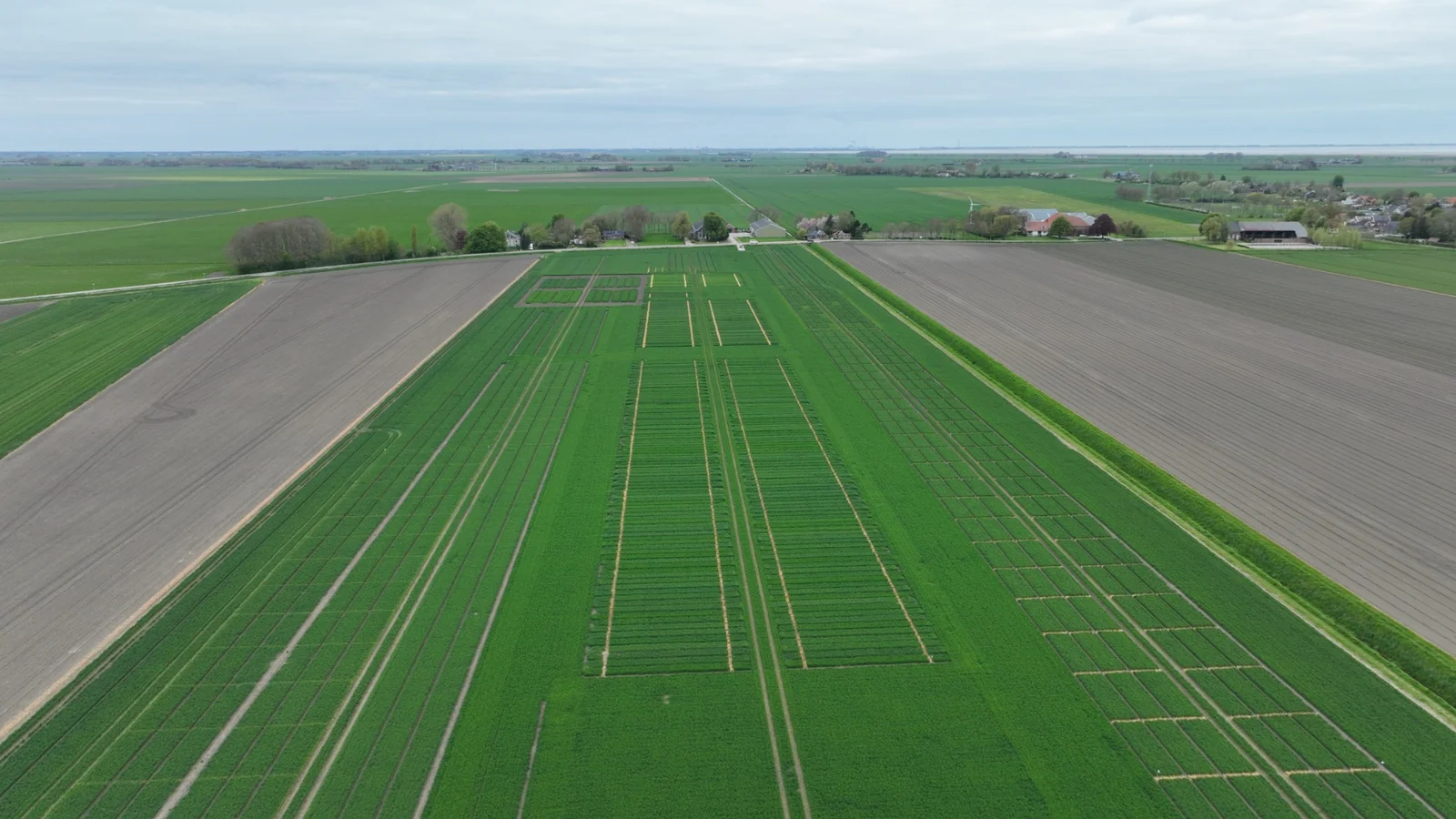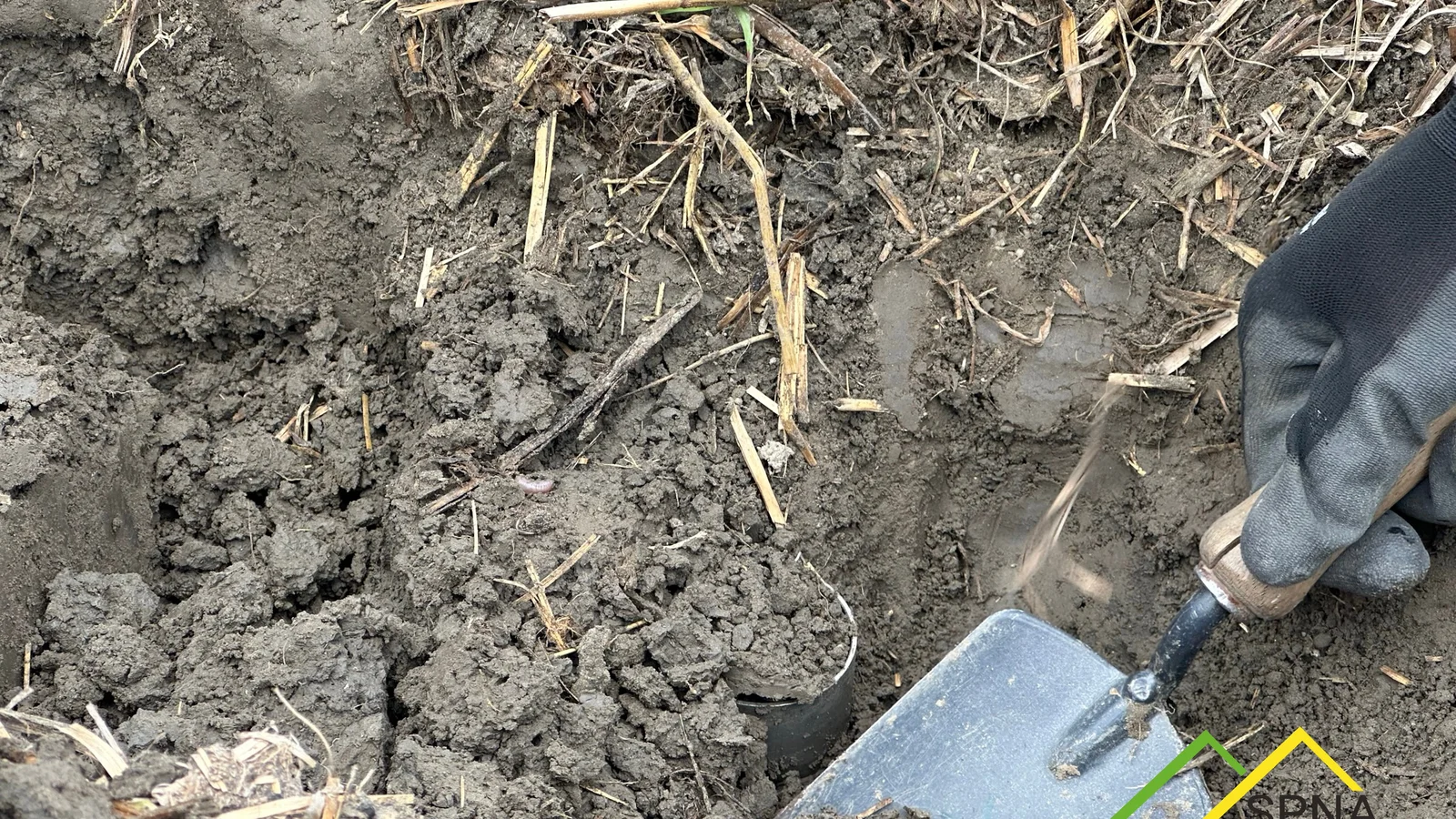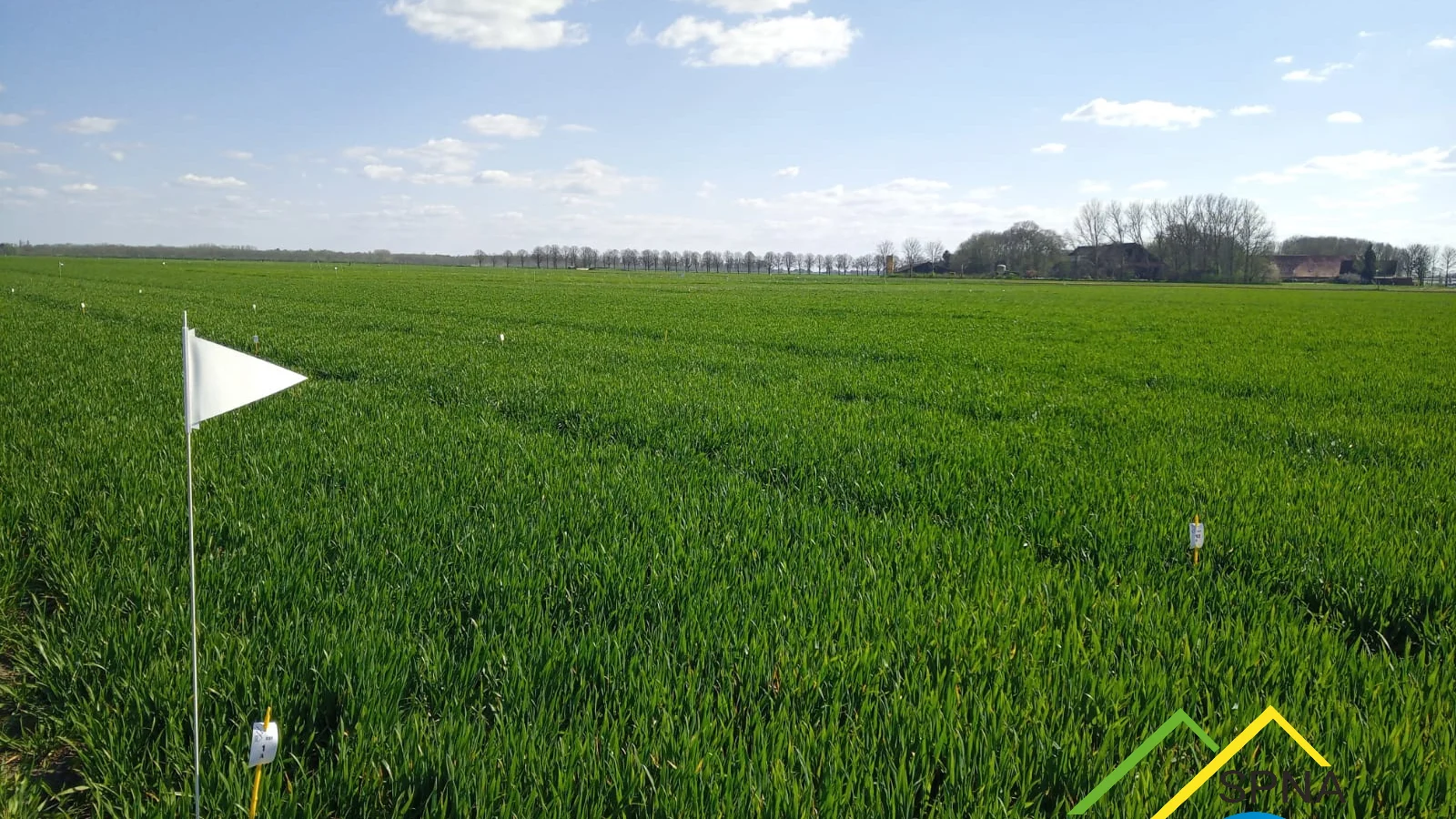Netherlands
Description
SPNA Ebelsheerd
SPNA Ebelsheerd is located on heavy clay soils in a cereal-growing region. The experimental farm Ebelsheerd has both organic and conventional fields on a total area of 112 ha. The conventional crops grown are winter wheat, winter barley, rapeseed, onions, sugarbeet and lucerne. The organic crops grown are spring wheat, pumpkins and string beans. The NBS solutions will be trialled on 3 ha land.
SPNA Kollumerwaard
SPNA Kollumerwaard is located on reclaimed clay soils in a region growing mainly seed potatoes. The experimental farm also has both organic and conventional fields. The conventional crops grown are seed potatoes, sugarbeet, wheat and barley, and the organic crops are seed potatoes, carrots, oats, grass-clover mixtures, wheat and pumpkins. The NBS solutions will be trialled on 20 ha.
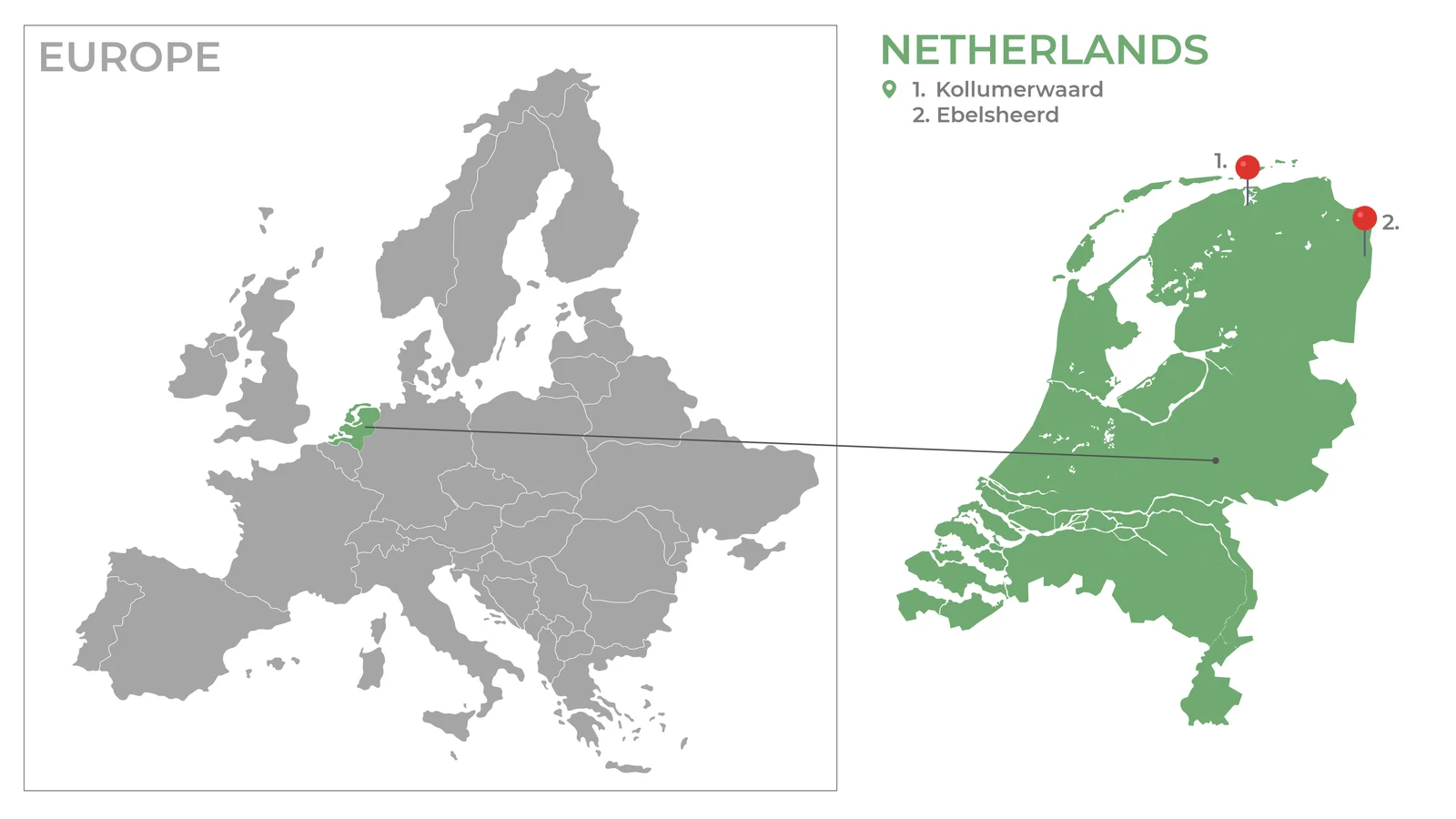
Challenges
trans4num is testing the use of more natural approaches to crop nutrient management in three contrasting farming systems in the region:
- An organic farming system with potatoes, wheat and carrots. Possible nutrient sources include grass-clover mixtures and lucerne etc., both for mulching and silage;
- A conventional farming system with wheat in rotation, and;
- A regenerative arable organic farming system with potatoes in rotation.
All field trials will be conducted on the SPNA Ebelsheerd and Kollumerwaard experimental farms. The SPNA researchers will collaborate with farmer groups at the study sites to design and test the NBS innovations and disseminate the results. Comprehensive soil and crop data will be collected from both sites for evidence-based decision-making.
trans4num NBS test site
Cover crops in rotation with seed potatoes
Cover crops have several benefits issues, buffering uncertainties in the supply of fertilisers and improving soil quality. Farmers have their own preferences regarding which cover crops to sow but need more information on when best to destroy and incorporate them into the soil to optimise the availability of nutrients for the following potatoes. SPNA will research the availability of soil nutrients when the cover crop is destroyed at different times before sowing the seed potatoes.
Grass-clover mixtures in rotation with organic winter wheat
Organic winter wheat is mainly fertilised with animal manure; however, there are shortages of manure in the region and farmers are looking for alternatives. SPNA is therefore researching the use of grass-clover mixtures grown in rotation.
Lucerne and grass-clover pellets for fertilising winter wheat
Trials at SPNA Ebelsheerd will test the use of lucerne and grass-clover pellets (a form of biofertiliser) as an innovative alternative to the conventional use of mineral fertilisers. Comparison of the mineral and biofertilisers will include investigation of the impact upon both short- and longer-term soil nutrient status and crop yield and quality.
Multimedia products
Video: Introduction to the Dutch NBS site Presentation: Introduction to the Dutch NBS site Video: Cover crops in a potato based crop rotation Presentation: Cover crops in a potato based crop rotation Factsheet: NL NBS site Factsheet: Progress of the NBS implementation and testing in the Netherlands NL NBS sites - Insights from Year 1 NL NBS sites - Insights from Year 2 trans4num Practice Abstract: Cut-and-carry green manure trans4num Practice Abstract: Planty organic trans4num Practice Abstract: Plant-based fertilizer and natural crop protection trans4num Practice Abstract: Green fertilizers trans4num Practice Abstract: Innovative crop strategies for seed potato trans4num Practice Abstract: Innovating crop rotation & soil health on clay soils Blog: A day in the field at SPNA How can NBS help Dutch arable farmers
Second year updates
In the Netherlands, trans4num continues to refine plant-based fertilisation systems and cover-crop strategies at the SPNA research sites in Kollumerwaard and Ebelsheerd, bridging scientific research and practical application.
1) Research highlights
Ongoing wheat and potato trials provide valuable data on yield performance, nutrient cycling, and microbial activity. The results demonstrate that NBS fertilisation can maintain productivity while reducing dependence on mineral fertilisers.
2) New insights
Plant-based fertilisers, such as alfalfa and grass pellets, improved soil biological diversity and organic matter. The NDICEA model confirmed that optimising timing and application rates is essential to balance nutrient supply with crop uptake.
3) Stakeholder engagement
Farmer meetings and seasonal field visits have continued, with advisors and growers discussing nitrogen management, green manures, and potential adoption of plant-based fertilisers.
4) Next steps
The next steps include publishing detailed factsheets and webinar materials for advisors and farmers, and contributing data to trans4num’s cross-site nutrient modelling to identify regionally scalable practices.
First year updates
Ebelsheerd Location: On this site the winter wheat test fields are nearly harvested and the results will be processed to generate yield figures and crop observations. Construction for the 2025-2026 growing season is ongoing.
Kollumerwaard Location: On this site, the potato trial is in full swing, with observations continuing throughout the growing season.
1) Stakeholder engagement
SPNA has organized meetings with farmers to discuss trial field results and practical applications of the research. These meetings were held as follows: at the Ebelsheerd site to discuss winter wheat trials, attracting around 50 attendees and another meeting at Kollumerwaard site focusing on the potato field trials results. The full results will also be shared in a webinar during the upcoming winter seasons.
2) Preliminary findings
Soil and crop samples have been collected and analyzed to evaluate the impact of different crop rotations and fertilization strategies. Analyses include soil physical and chemical properties, as well as microbial community assessments. Findings show distinct differences in nutrient content, soil structure, and microbial diversity across the fields, with notable variations between conventional and organic management practices.
3) Next steps
Initial results from the 2023 sampling and trials have been compiled and analyzed, demonstrating promising outcomes in terms of yield, soil health, and microbial diversity. Findings have been documented in scientific articles and reports. A new cycle of trials for 2023-2024 has begun, building on the findings from the previous year and incorporating adjusted methodologies.
4) Methodologies
1) Conventional Winter Wheat Trial: Different nitrogen application strategies are being tested with the Bennington variety to optimize fertilization for improved crop performance.
2) Organic Winter Wheat Trial: The Calgary variety is being used to compare the effects of organic inputs, including bio-fertilizers and organic amendments, on crop health and yield.
3) Potato Trial Field: The Fontane variety is being studied to evaluate the effectiveness of NBS in protecting seed potatoes from virus infections through aphid control.
The Netherlands NBS Team
STICHTING PROEFBOERDERIJEN NOORDELIJKE AKKERBOUW
westerhof@spna.nl
Henk Westerhof
WAGENINGEN UNIVERSITY
coen.ritsema@wur.nl
Prof. Dr. Coen Ritsema

